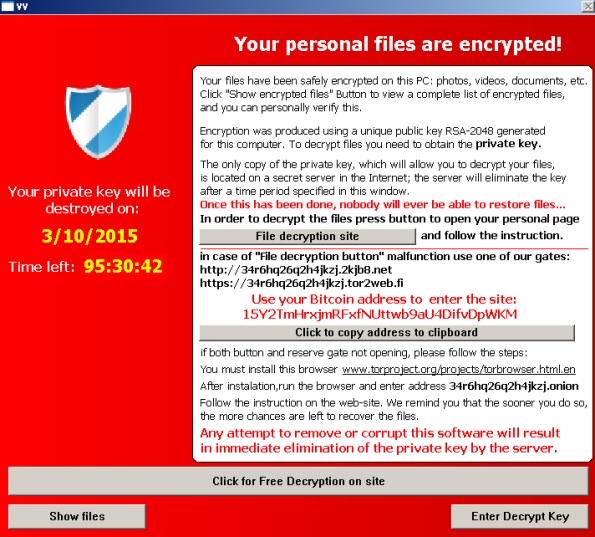Crypto ransomware variant targets gamers
Posted by: Timothy Weaver on 03/16/2015 08:13 AM
[
 Comments
]
Comments
]
A new crypto-ransomware variant is targeting more than 20 different online games.

According to Bromium, the ransomware is being distributed from a compromised web site that redirects visitors to the Angler exploit kit by using a Flash clip.
Bromium researchers noted in an analysis: “Encrypting all these games demonstrates the evolution of crypto-ransomware as cybercriminals target new niches. Many young adults may not have any crucial documents or source code on their machine (even photographs are usually stored at Tumblr or Facebook), but surely most of them have a Steam account with a few games and an iTunes account full of music. Non-gamers are also likely to be frustrated by these attacks if they lose their personal data.”
As a precaution for any ransomware, users should keep their personal data backed up to an external drive or the cloud, and keep the drive unplugged when online.
Source: Bromium

According to Bromium, the ransomware is being distributed from a compromised web site that redirects visitors to the Angler exploit kit by using a Flash clip.
Bromium researchers noted in an analysis: “Encrypting all these games demonstrates the evolution of crypto-ransomware as cybercriminals target new niches. Many young adults may not have any crucial documents or source code on their machine (even photographs are usually stored at Tumblr or Facebook), but surely most of them have a Steam account with a few games and an iTunes account full of music. Non-gamers are also likely to be frustrated by these attacks if they lose their personal data.”
As a precaution for any ransomware, users should keep their personal data backed up to an external drive or the cloud, and keep the drive unplugged when online.
Source: Bromium
Comments






